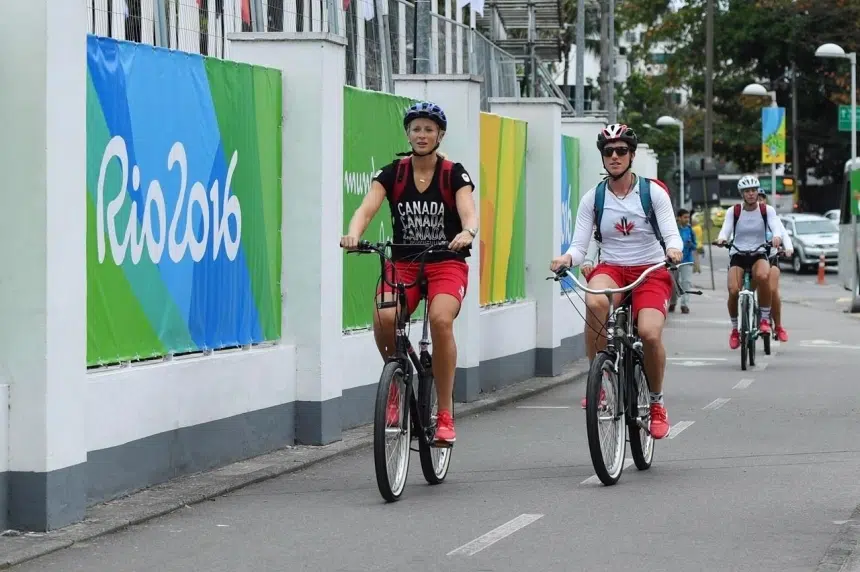RIO DE JANEIRO — Pascal Lussier and the rest of Canada’s rowers at the Summer Olympics have a simple rule — no racing away from the water.
Wary of Rio de Janeiro’s infamous traffic jams, the Canadians decided to ditch the athletes village in the western part of the city and instead checked into a hotel not far from the rowing venue in the heart of the bustling metropolis.
Being close to Lagoa Stadium means the rowers are using bikes to get to and from events, but they’re also being extra cautious.
“We’re obviously competitive guys and we want to beat each other, but we made a rule that on the road we stay calm,” said Lussier, a men’s four crew member from St-Jean-sur-Richelieu, Que. “We travel with five or six guys and take up the lane and we make sure we’re really safe. So far it’s been pretty good.”
Lisa Roman of Canada’s women’s eight boat said the decision to go with bikes helps with preparation and avoids unnecessary anxiety ahead of a race.
“We came here and did a site tour and learned about the area,” said the Langley, B.C., product. “It’s hard to get around here so it was the easiest way for us to travel as a pack and get to where we need to go quickly.”
Travelling in groups isn’t as easy for Carling Zeeman of Cambridge, Ont., who competes in women’s single sculls.
“There’s the buddy system that gets tricky for me so my coach always sticks to me,” she said. “I do a lot of biking at home. For me, it’s just another day.”
While the bikes make life easier in some ways, the Canadians do have to deal with aggressive Rio drivers on crowded and congested streets.
“We travel a lot on the sidewalks,” said Zeeman. “We go slow when we need to go slow.
“It’s just a matter of being smart.”
___
Follow @JClipperton_CP on Twitter
Joshua Clipperton, The Canadian Press
©2016 The Canadian Press







